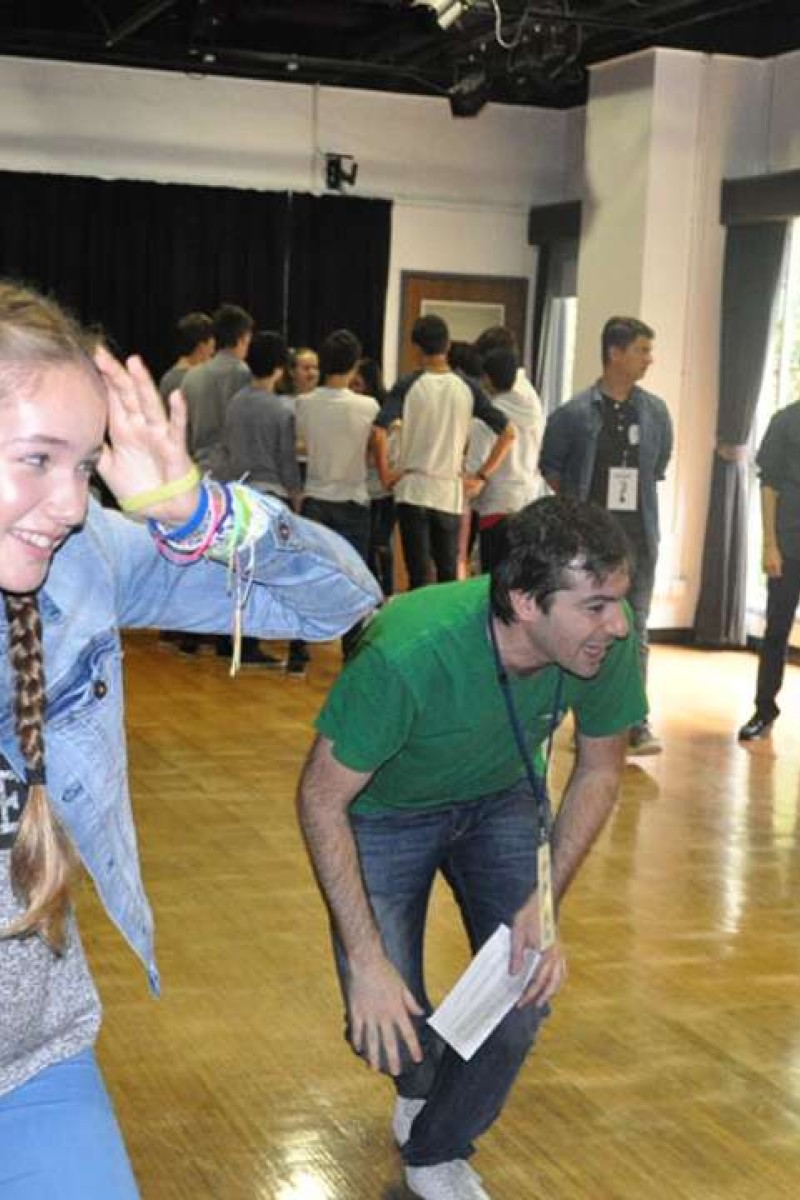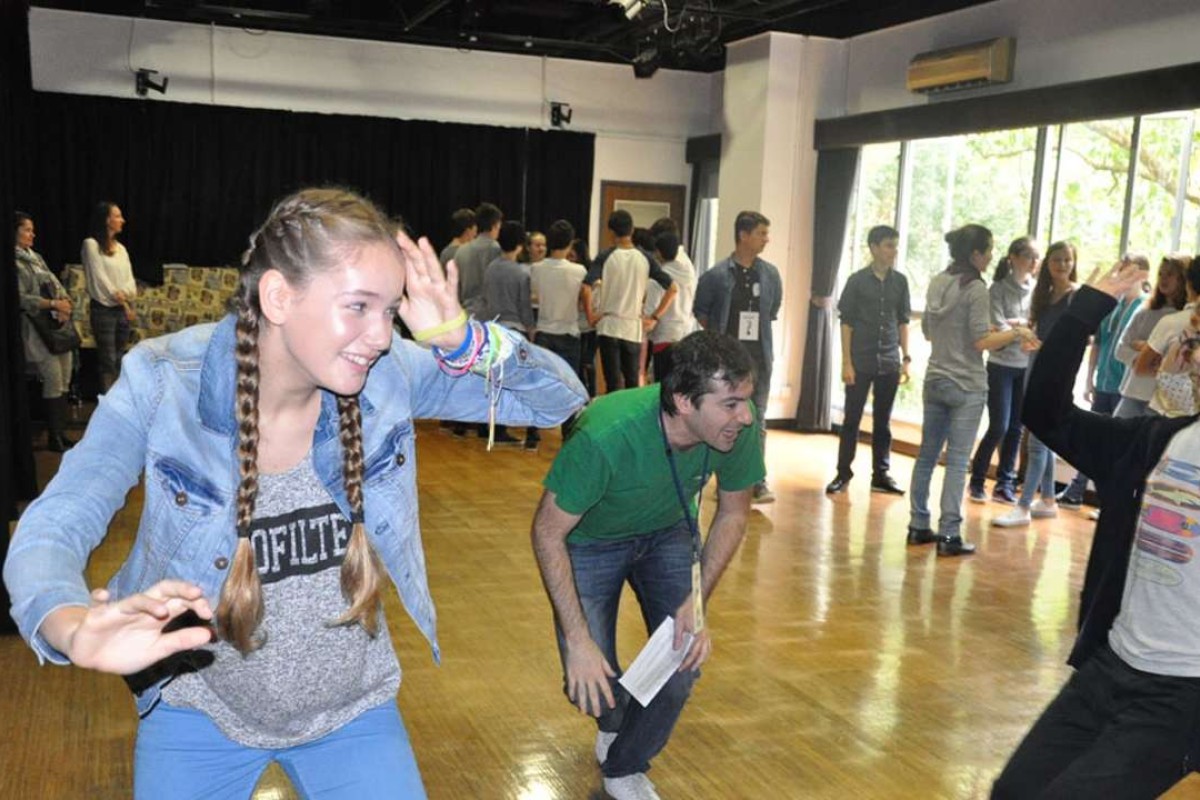
French International School students discover acting isn’t just about learning scripts
Theatre group “Les Enfants Terribles” taught FIS students how to get in touch with their emotions and express themselves
 Students at FIS let go of their inhibitions and become more confident actors.
Students at FIS let go of their inhibitions and become more confident actors.A good actor has to lie. But unlike most lies, the lies an actor tells aren’t necessarily with words.
The best actors lie with their actions and with their emotions, convincing the audience that they are really feeling what they show on stage. It’s a hard trick to learn, as drama students from the French International School (FIS) found out.
The students got to work with several French theatre companies visiting Hong Kong for the Hong Kong French Theatre Festival last month.
The professional actors put the students through their paces, teaching them how to show emotion convincingly on stage. Through different activities and workshops, students were able to let go of their inhibitions and show a range of emotions while being coached and encouraged by the experts.
In addition to getting in touch with their feelings, students also learned how to handle classical texts and interpret stage directions and lines for theatre productions.
Of course the importance of words in a theatrical performance cannot go unnoticed. The professional actors led discussions on how to interpret what the author of a play has written, even down to how the smallest punctuation can be emphasised in a performance. The words on the page go hand-in-hand with how an actor chooses to articulate their lines and even play with words on stage.
But of course, actors and directors must always keep in mind what the intention of the author was, and hopefully not stray too far from this.
After the workshops, the FIS students got to see all this theory in action through two plays with exclusive performances for the school.
In their own words
French International School students Paul Thomas, Daphné de Quatre-Barbes and Pia Garreau de Labarre share their experience of learning from French theatre company “Les Enfants Terribles.”
“Les Enfants Terribles” came to teach us all about the art of theatre– and the actors were determined we would learn lots!
Kicking off with a group warm up, we split into two circles and one by one we had to give our first name but had to follow this up with a mime of something we like doing. It sounds simple, but it was quite embarrassing!
Our next activity was the “museum elevator”: a game in which we had to imagine going from floor to floor in a museum. Every time the elevator doors opened, we had to strike a pose representing what was on that floor. From posing as flowers to being an Egyptian mummy, this game was full of surprises.
After this short introduction, we split into smaller groups to work on the main theme of the workshop: expressing emotion in theatre. With an actor in the middle of our group, we had to gather around him in a circle listening to his instructions about our location. One minute it was snowing, then it was hot, and we had to react accordingly. It was great fun!
Then we tackled speaking. We had to say phrases in different ways: slowly, as though we were terrified, or even sing it. This immediately showed us that it is not easy to express emotions orally.
Another mime exercise followed where we had to switch from one feeling to another but keep acting the feeling for a longer time – fear and sadness were the emotions most of us found it hard to convey.
Finally, we imagined playing with a ball, throwing and catching it in a circle – the ball could be made of lead, be huge or on fire.
At the end of all the group work, the whole class came together for one last exercise: a dance of emotions. We had to listen to a piece of music and then express the feelings that it brought out in us.
The two hours with the actors flew by. We worked on expressing our feelings, engaging different areas of our imaginations, our physical and mental reflexes and our spontaneity. It was a great way to build self-confidence and understand emotions. The actors’ love of their trade certainly rubbed off on us and we loved discovering a new side to theatre.
Next stop – the stage!